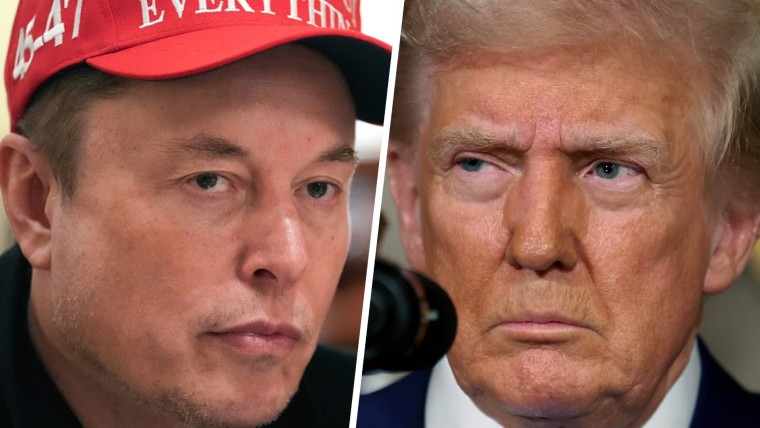The chaotic efforts of Elon Musk’s Department of Government Efficiency (DOGE) to cut federal spending without congressional approval have already led to widespread harms. Now, for the first time, the White House is reportedly planning to ask congressional Republicans to formally enact a share of DOGE’s damaging agenda into law. But though the first proposal is just a fraction of DOGE’s attempted cuts, Republicans in Congress are already having trouble taking responsibility.
Ironically, the administration would deliver the proposal under authorities and procedures outlined in the Congressional Budget and Impoundment Control Act of 1974 — the same law the administration has flouted for months while illegally withholding, or impounding, funds appropriated by Congress. Under that law, the Senate can approve a rescission package with only a majority vote — no filibuster allowed. But even with that lowered hurdle, the Trump administration is struggling to find much among its unlawful freezing of funds that at least 50 Republican senators are willing to publicly support.
As Elon Musk walks back his original inflated promises of savings, the Trump administration has dragged its feet on getting Congress to affirm its cuts.
The White House is in a bind of its own creation. The executive branch cannot legally cancel funding on its own: Congress decides how much money is made available and how it can be used. The administration can only lawfully delay the spending of that funding after it sends a “special message” formally proposing that Congress rescind — in essence, take back — those funds. And the delay can only last for a short time while Congress considers the proposal.
Of course, in the roughly 100 days since the Trump administration started illegally impounding funds, it has sent no such messages. The White House continues to trumpet DOGE’s deeply unpopular efforts, but as Elon Musk walks back his original inflated promises of savings, the Trump administration has dragged its feet on getting Congress to affirm its cuts.
Part of the White House’s problem is that any rescission proposal transmitted to Congress highlights that the administration has been illegally impounding funds — both those included in that package and, perhaps more crucially, those not included. Democrats on the Senate Appropriations Committee recently estimated that the Trump administration is actively holding up or fighting in court to block over $400 billion in federal funds. Already, the Government Accountability Office has opened nearly 40 impoundment investigations into different administration actions.

The other part of the problem is finding the votes. The first rumored rescission package was a supposed $9.3 billion in cuts from PBS, NPR, the State Department and the U.S. Agency for International Development, with roughly $8 billion coming from foreign aid. The dollars at stake are relatively small in the context of DOGE’s (inflated and error-ridden) claims of savings. Yet it “has run into a buzzsaw of opposition from House and Senate Republicans,” Punchbowl News reported earlier this week.
It’s reminiscent of the old joke about a restaurant where the food is poison and portions are too small. Even congressional Republicans seem to blanch at the juxtaposition of focusing on cutting — rather than proposing improvements to — foreign aid and public broadcasting while extending trillions of dollars in tax cuts, mostly for the wealthy.
Why isn’t a friendly majority Republican Congress clamoring to share in the credit by voting these attempted cuts into law?
The rescission package may hamstring or eliminate programs that, for example, aim to help feed starving children with the help of American farmers and manufacturers and longtime bipartisan initiatives to help those suffering from HIV/AIDS around the world — not to mention local PBS programming — while the proposed savings from such cuts would offset a tiny 0.2% of the cost of merely extending the expiring individual tax provisions from the 2017 tax law.
Remember, DOGE has already taken myriad harmful and capricious actions: from making it harder for people to get their Social Security benefits and ending programs that provide food assistance to schools and food banks by letting them buy goods directly from farmers, to dismantling the Consumer Financial Protection Bureau and canceling or freezing billions of dollars for medical research.
So then why are only foreign aid and public broadcasting budgets allegedly being brought forward to Congress for rescission? If the Trump administration has more savings it can proudly recommend to at least 50 Republican senators, why is it so slow to bring those forward? While DOGE continues to pursue unlawful impoundments, why isn’t a friendly majority-Republican Congress clamoring to share in the credit by voting these attempted cuts into law?
The answer is clear: More than 100 days since the White House began illegally impounding funds, it seems that no one wants to publicly own DOGE’s actions that continue to hurt people across the country. But try as Republicans might to hide the results, the Trump administration has shown that even without producing a lot of budgetary savings, it is possible to do a lot of harm.
